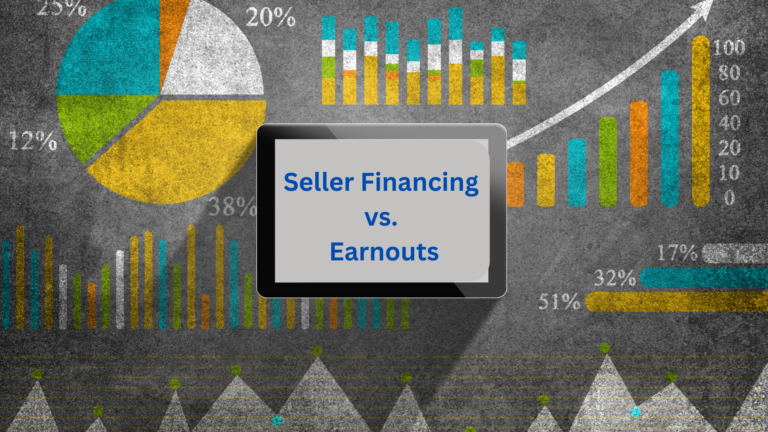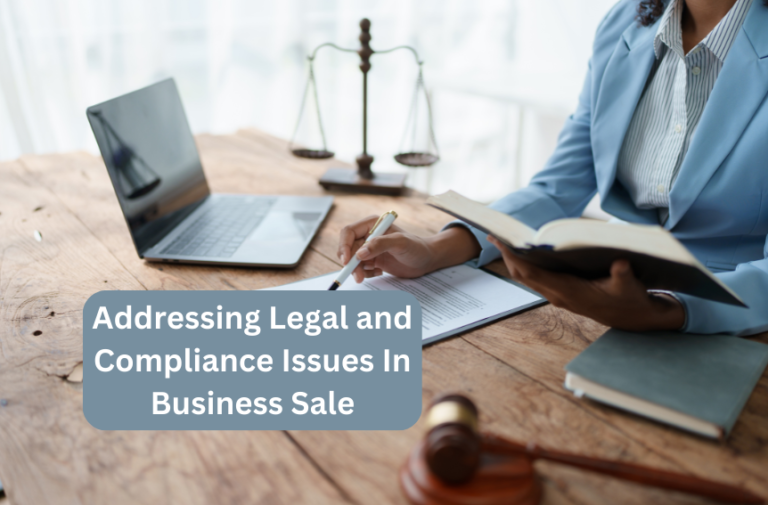Selling your business is one of the most significant decisions you will make as an entrepreneur. Timing, preparation, and market conditions all play crucial roles in ensuring a successful sale. Whether you’re looking to capitalize on a profitable venture, transition into a new phase of life, or step into a new business opportunity, understanding when it’s the right time to sell is essential. Here are some key signs, along with insights on how business advisors can guide you through the process and maximize the value of your business.
1. Your Business is Thriving
A thriving business is a more attractive proposition for potential buyers. When your business is performing well, it’s an indication that the sale price can be maximized:
- Healthy Financials: If your business has consistent revenue growth, strong profit margins, and clean financial records, it will be more appealing to buyers. Solid financial performance shows future potential and reduces risk for buyers.
- Growth Opportunities: Buyers often look for businesses that can scale. If your business has room for growth without requiring massive reinvestment, it is likely to attract premium offers.
- Market Demand: If your industry is experiencing growth, with increasing investor interest, it’s an opportune time to sell. A healthy market can help you fetch a higher sale price and sell quickly.
2. The Market is Favorable
Market conditions significantly impact the potential sale price and success of your business sale. Keeping an eye on the external environment can help you time your exit:
- Rising Valuations: If other businesses in your sector are selling at higher multiples, now might be the perfect time to capitalize on these elevated valuations.
- Low Interest Rates: When interest rates are low, buyers have access to affordable financing, which can increase demand for your business and lead to more competitive offers.
- Industry Consolidation: If larger companies are acquiring businesses in your industry, this signals a consolidation trend. Your business could be an attractive target, which increases your chances of securing a favorable deal.
3. You’re Personally Ready to Move On
Your readiness to step away from your business is just as important as the state of the market. Personal motivations can often signal that it’s time to sell:
- Loss of Passion: If you find yourself disengaged from the business or no longer feel the same passion that drove you at the start, it can negatively impact performance and growth.
- Desire for New Ventures: If you’re ready to explore other opportunities or change career directions, selling your business could be the first step toward your next adventure.
- Life Changes: Major life events—such as retirement, health concerns, or family commitments—often make it necessary to step away from day-to-day operations and refocus your priorities.
4. Your Business Can Operate Independently of You
One of the most attractive features for potential buyers is a business that doesn’t require constant involvement from the owner. Here’s what makes your business more appealing:
- Strong Leadership Team: If you’ve built a capable management team that can run the business without your day-to-day involvement, it reassures buyers that the company will thrive post-sale.
- Documented Processes and Systems: Well-documented systems and standardized processes ensure the business operates smoothly and reduces operational risks. Buyers appreciate businesses that can run without major changes.
5. Your Financial and Tax Strategy Are in Place
Before selling, it’s crucial to understand the financial and tax implications. This includes assessing the value of your business, calculating debt payments and capital gain taxes, and planning for post-sale living expenses to ensure a smooth transition:
- Debt Payoff: Paying off debt when selling a business is crucial for enhancing its appeal to buyers. Settling outstanding liabilities demonstrates financial stability, reduces perceived risk, and can lead to a more favorable sale price. It also simplifies the due diligence process, expediting the transaction.
- Capital Gains Considerations: The timing of your sale can significantly affect your capital gains tax. It’s critical to consult your tax accountant to strategically time the sale to minimize tax liabilities and maximize your after-tax proceeds.
- Exit Planning: A clear, structured exit plan, including post-sale planning, ensures that the sale is well-coordinated and maximizes your business’s value. Additionally, it guarantees you have sufficient financial resources to support a comfortable lifestyle post-sale. A business advisor can help you craft a strategy that aligns with both your personal and financial goals.
Final Thoughts
Selling your business is a pivotal moment that requires thoughtful planning and the right timing. By assessing your business’s performance, recognizing favorable market conditions, and ensuring that your financial and tax strategies are in place, you can make an informed decision. Working with an experienced business advisor ensures you maximize the value of your business and navigate the process with confidence, whether you’re stepping into retirement, exploring new opportunities, or transitioning to the next chapter of your entrepreneurial journey.
If you’re considering selling your business, start a free consultation with us at [email protected]. With the right strategies and support, you can set yourself up for success in your next adventure.












